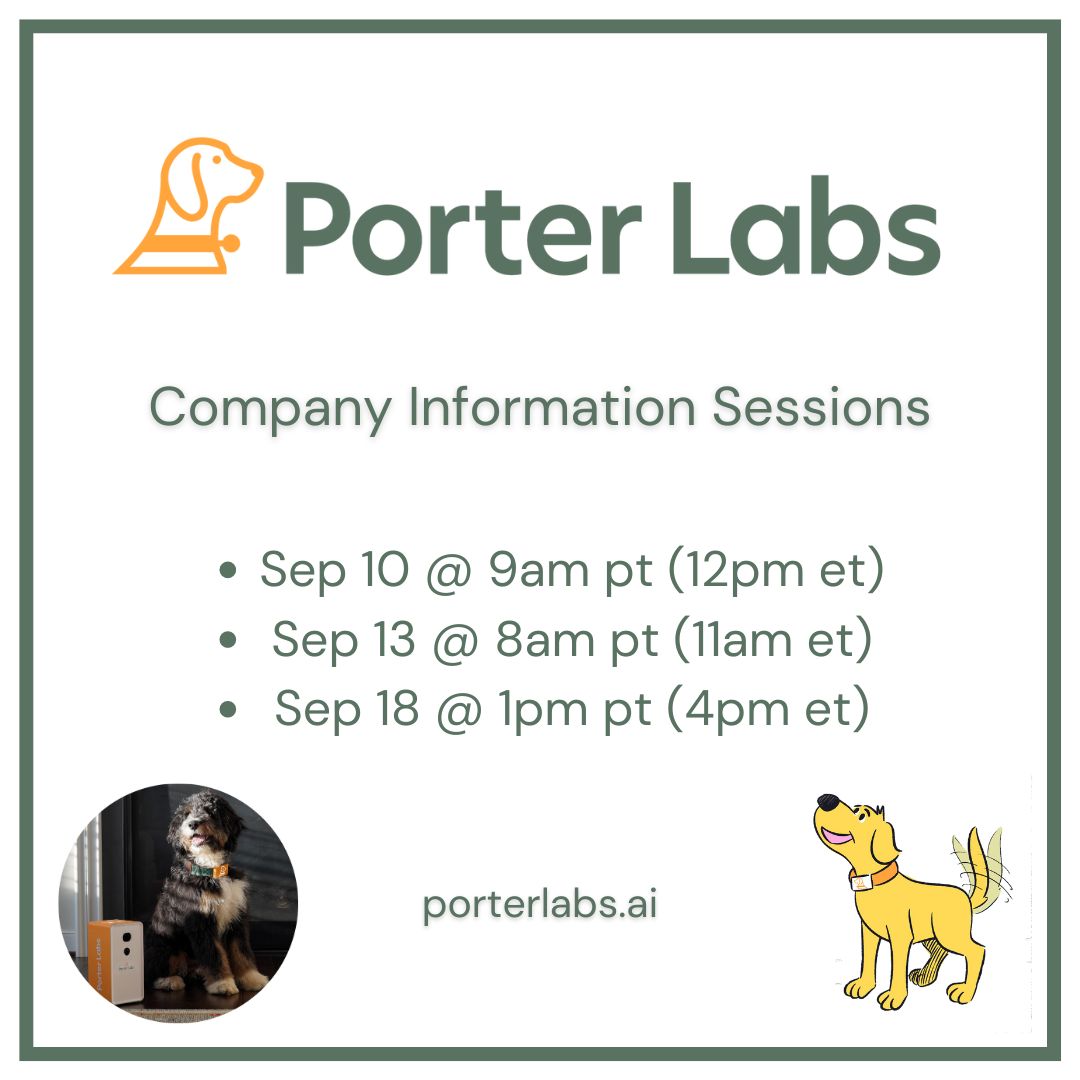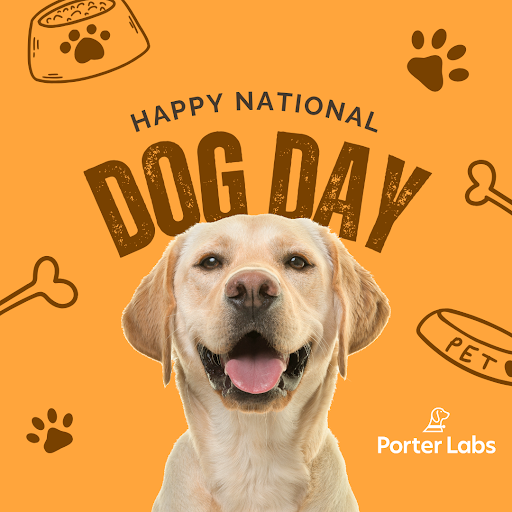*This article originally appeared on The Digital Paw Print on 04/29/2024.
When people are occupied so much of the time with work or other commitments, pets still need to be engaged. Failure to properly train them costs our society millions of dollars. In fact, more than nine out of ten dog owners don’t work with professional trainers, according to the APPA. Often poorly trained dogs result in dangerous or destructive behaviors, damaged property or legal cases, and even worse surrenders and euthanasia.
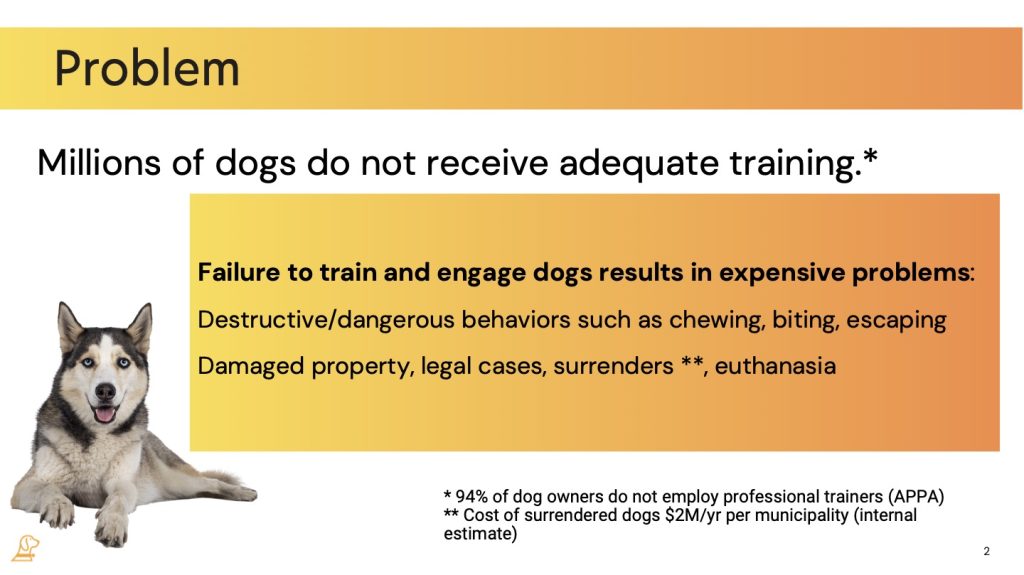
Dog owners often don’t have the time or money to train their dogs as much as needed to get the desired outcomes and engagement. That’s where Porter Labs’ technology called PupStation comes in.
When co-founder Karthik Arumugham got a high-energy working dog and realized his dog Porter needed engagement while he was busy working on his computer, he created the Porter Labs flagship product, PupStation, as an autonomous tech solution to train and engage dogs while humans are busy
The genesis of the autonomous training tech
Unlike conventional pet devices that merely dispense food or offer basic tracking capabilities, PupStation represents a shift to customized training, powered by artificial intelligence (AI) and machine learning (ML).
“We’re a data-driven company, working from a foundation of canine behavior science,” says Scarlett Trillia, co-founder and CEO of Porter Labs. “We are working from a deep understanding of canine skill-shaping and healthy engagement activities and have adapted these into an autonomous system.”
Conventional pet training devices fail because they need to define and identify behavior to incentivize. Typically devices don’t know if the dog did what it was supposed to and if the outcome is from learning or just running through the rolodex of what he knows how to do.
Porter Labs’ modular system can transform spaces into unique play zones, even if the dog is in a large home, backyard, or training facility. It integrates various IoT devices and provides verbal instructions tailored to each pet’s skill development and mental stimulation needs.
Understanding PupStation technology
PupStation focuses on behavior science principles that use positive reinforcement techniques to teach and engage dogs. Satellites coordinate with the feeder and collar. The dog wears a collar with sensors that detect motion and sound, and ML identifies and tracks the dog’s behavior. AI assigns programmed activities to develop the dog’s skills, and as the dog completes those skills, he or she is rewarded with treats from an automated feeder. For instance, PupStation might give the dog a verbal command to settle and once the dog remains settled for a determined amount of time, he or she will receive a reward.
The AI model development follows this process:
- Image collection
- Image screening
- Image labeling
- Model development
- Model training
- Model evaluation
- Adjustments every step of the way
PupStation shapes pets’ skills and turns downtime into an autonomous training or play session that doesn’t require the presence of pet parents or trainers.
Applications in the training world
As Porter Labs prepares to introduce PupStation into the market, they’re starting with a B2B strategy with training and boarding facilities, so they can truly test the technology and collect data about its utility and impact. PupStation isn’t a replacement for dog trainers. It’s a training tool devised to help with behavior development more than behavior correction. It solves for continuity and consistency. Most dog owners and trainers struggle with bandwidth, so this technology bridges that gap and provides a solution that progresses and reinforces skill development while offering valuable mental stimulation.
Many trainers work independently and have a limit to the number of dogs they can train at the same time. The vision is that PupStation can train simple skills, so dog trainers can focus on more advanced training. When a dog is crated or in a kennel, they can practice simple skills, autonomously.
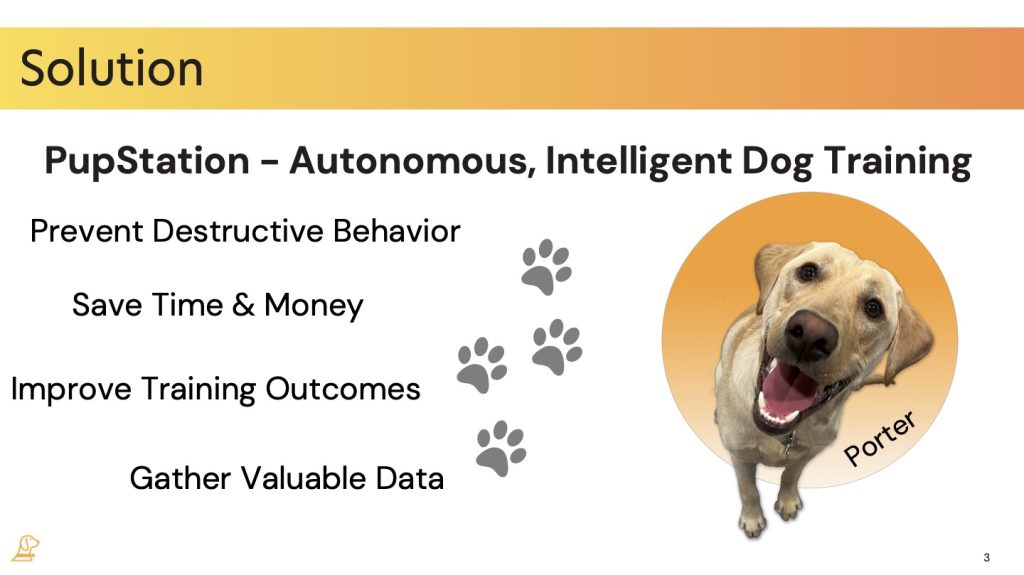
By collecting data, the team will be better able to understand things like the impact of tone of voice and the timing of instructions. For instance, does the dog respond better when the voice is robotic or human, and male or female? Does it bring comfort and joy, or is it confusing? Or does the dog lose the capacity to distinguish between them?
Launching PupStation with trainers holds an immense opportunity. The pet boarding and training services will be a $6B-$11B market by 2033, with pet technology innovations such as PupStation leading that market growth. Scarlett said that while they’re starting in the B2B setting to gather data about improving training outcomes, they already have a growing waitlist for consumers to access the product.
Porter Labs is open to partnerships for testing PupStation in professional canine facilities, and in particular, they’re looking for the right partner in the shelter space.
Trainers, vets, and adoption specialists will likely be the conduit between Porter Labs and pet owners. If a dog owner takes her dog to a boarding or training facility and the dog is responsive to the technology, the trainers might recommend the owner take PupStation home to make sure their new skills don’t atrophy. The trainer could follow along via the software platform and help guide the owner to continue to develop skills and provide appropriate activities for the dog.
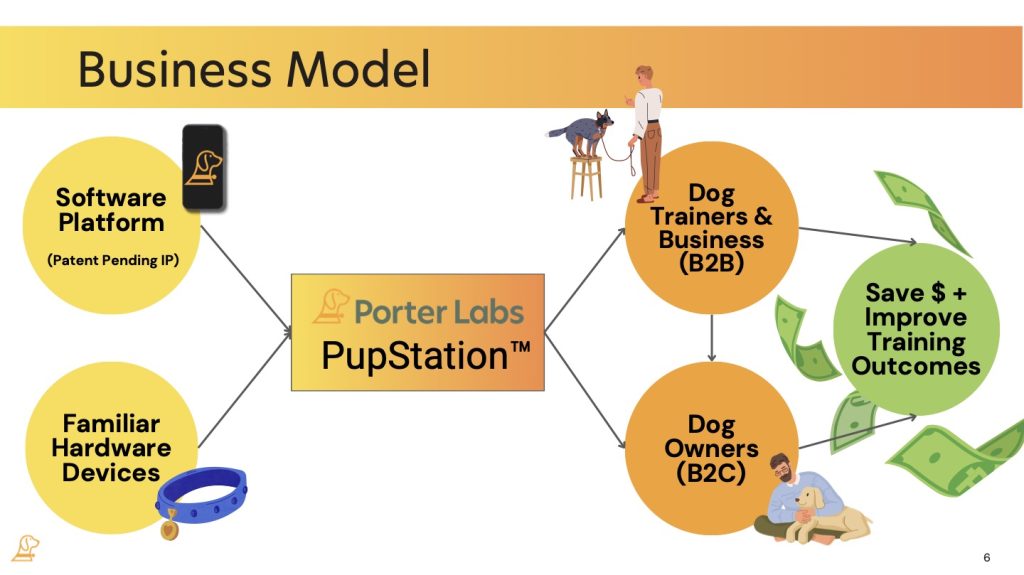
“This tool will remain useful for a dog’s lifetime because the system itself will be able to detect skills that the dog is maintaining and the skills that the dog needs to build,” says Scarlett. “PupStation considers the dog’s body size and breed, among other data points. And it learns and adapts in a modular way. A pet owner can rearrange the devices and the program will tell the dog that they’re going to play in a different pattern. It mixes and matches skills to progressively challenge the dog’s mind and protect the dog’s body from repetitive stress or obsessive behavior.”
Improving shelter outcomes
Mental stimulation is as important as physical exercise for dogs, and rescue facilities feel this pain the most. They can’t afford enough trainers to give every dog the care they deserve and behaviorists are stretched extremely thin.
The main reason that dogs are surrendered is because of behavioral issues due to lack of training, said Scarlett. One mission of Porter Labs is to reduce surrender and euthanasia rates and improve the likelihood of permanent adoptions.
Often shelters have one person working on behavioral issues and training, if even that. That person is responsible for many dogs that need their support and shelters rarely have additional budget for more behavioral specialists.
While shelters run on very tight budgets, this kind of technology could ultimately provide cost savings. The cost for a behaviorist, boarding a difficult dog, and/or euthanasia could be reduced with AI-based training. PupStation would increase access to vital skill development for more dogs, improve adoption timelines, and decrease the number of dogs surrendered or put down.
The future of Porter Labs
While the Porter Labs team is just at the start of its journey, the vision is big. Scarlett shares, “We’ll become the Apple Watch and Apple Health for dogs. The PupStation collar sends information to the software platform and can interact with different IoT devices, including but not limited to food dispensers and satellites.”
She envisions a day where the technology will have the ability to interact with other IoT devices and the Porter Labs software platform will allow for ease of exchange between the dog owner and professional service providers such as vets and trainers. For example, a professional may enter notes into a dog’s profile that instructs the system to adapt the training routine to accommodate recovery from an injury.
All around the world humans are rapidly adopting IoT and smart devices in their homes and workplaces. It’s time to include dogs, our closest animal companions, in this future of technological advancements.
Porter Labs represents more than just a pet device; it empowers dog parents and trainers to create new enrichment opportunities. It paves the way for a future where every pet can thrive, regardless of the demands of modern life.



